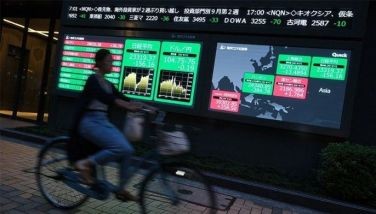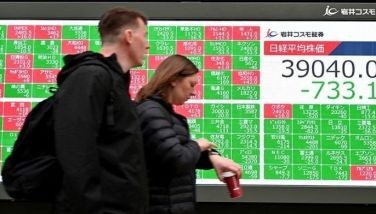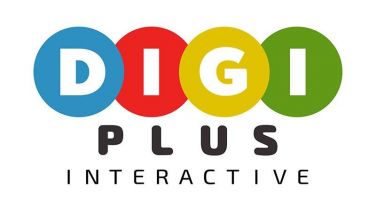RP seeks compromise with commish on marine products
November 25, 2002 | 12:00am
Philippine seafood exporters will push for a compromise with The Netherlands-based Codex Alimentarius Commission (CAC) to settle the issue of what can be allowed as the maximum lead content of marine products entering the European Union (EU) market.
Industry sources said a Philippine delegation will negotiate with the CAC’s Codex Committee on Food Additives and Contaminants (CCFAC) to put the new maximum level of lead contaminants on fish, marine and aquaculture products to 0.4 to 0.5 parts per million (ppm), instead of the 0.2 ppm being heavily lobbied by some countries of the EU.
CAC is the international body tasked with developing a food code known as the Codex Alimentarius which is the global reference point for harmonized or uniform food standards to ensure the protection of public health and promote practices in the food trade.
By March next year, the CCFAC will have a plenary session and is expected to decide on a new maximum level of lead and other heavy metal for seafood products.
"It will be difficult for seafood exporters to comply with a lower lead content of its products, and this is true not only for the Philippines but for other countries as well," said an official of one of country’s biggest seaweed exporters.
In a recent meeting of the sub-committee on fisheries and aquaculture of the National Agricultural and Fishery Council (NAFC), an attached agency of the Department of Agriculture (DA), industry representatives said there is no existing methodology that can bring down the lead content of marine and fishery products to the level of 0.2 ppm.
"Not even the United States has that methodology," said an official of the Seaweed Industry Association of the Philippines.
The same source said that existing levels approved by the CCFAC are already acceptable and EU is merely trying to impose more stringent rules to block the entry of Philippine marine produce.
"This is clearly a non-tariff barrier which some members of the European Union want implemented to protect their tuna and salmon fishing industries."
Earlier this year, the Philippines was able to convince the CCFAC to consider the position of the country on maximum levels of heavy metals in marine and fishery products.
The Philippine delegation led by Dr. Alicia Lustre, director of the Food Development Center, noted that the establishment of maximum levels by species, also being pushed by the EU, will create problems since it is difficult to gather data for all species.
Lustre pointed out that a criteria should be developed to determine if lead is considered a significant contributor to health risk, as there is no concrete evidence yet that exposure to lead through fish consumption is a health hazard, and that more information should be gathered on analytical methods and detection limits.
"What we also need to show in the next CCFAC meeting is that lead will not vary according to species of fish and this variation is probably due to methodology. To begin with, there is no problem on lead in seafood because even fish from polluted waters do not seem to take up lead."
Industry sources said a Philippine delegation will negotiate with the CAC’s Codex Committee on Food Additives and Contaminants (CCFAC) to put the new maximum level of lead contaminants on fish, marine and aquaculture products to 0.4 to 0.5 parts per million (ppm), instead of the 0.2 ppm being heavily lobbied by some countries of the EU.
CAC is the international body tasked with developing a food code known as the Codex Alimentarius which is the global reference point for harmonized or uniform food standards to ensure the protection of public health and promote practices in the food trade.
By March next year, the CCFAC will have a plenary session and is expected to decide on a new maximum level of lead and other heavy metal for seafood products.
"It will be difficult for seafood exporters to comply with a lower lead content of its products, and this is true not only for the Philippines but for other countries as well," said an official of one of country’s biggest seaweed exporters.
In a recent meeting of the sub-committee on fisheries and aquaculture of the National Agricultural and Fishery Council (NAFC), an attached agency of the Department of Agriculture (DA), industry representatives said there is no existing methodology that can bring down the lead content of marine and fishery products to the level of 0.2 ppm.
"Not even the United States has that methodology," said an official of the Seaweed Industry Association of the Philippines.
The same source said that existing levels approved by the CCFAC are already acceptable and EU is merely trying to impose more stringent rules to block the entry of Philippine marine produce.
"This is clearly a non-tariff barrier which some members of the European Union want implemented to protect their tuna and salmon fishing industries."
Earlier this year, the Philippines was able to convince the CCFAC to consider the position of the country on maximum levels of heavy metals in marine and fishery products.
The Philippine delegation led by Dr. Alicia Lustre, director of the Food Development Center, noted that the establishment of maximum levels by species, also being pushed by the EU, will create problems since it is difficult to gather data for all species.
Lustre pointed out that a criteria should be developed to determine if lead is considered a significant contributor to health risk, as there is no concrete evidence yet that exposure to lead through fish consumption is a health hazard, and that more information should be gathered on analytical methods and detection limits.
"What we also need to show in the next CCFAC meeting is that lead will not vary according to species of fish and this variation is probably due to methodology. To begin with, there is no problem on lead in seafood because even fish from polluted waters do not seem to take up lead."
BrandSpace Articles
<
>
- Latest
- Trending
Trending
Latest
Trending
Latest
Recommended

























